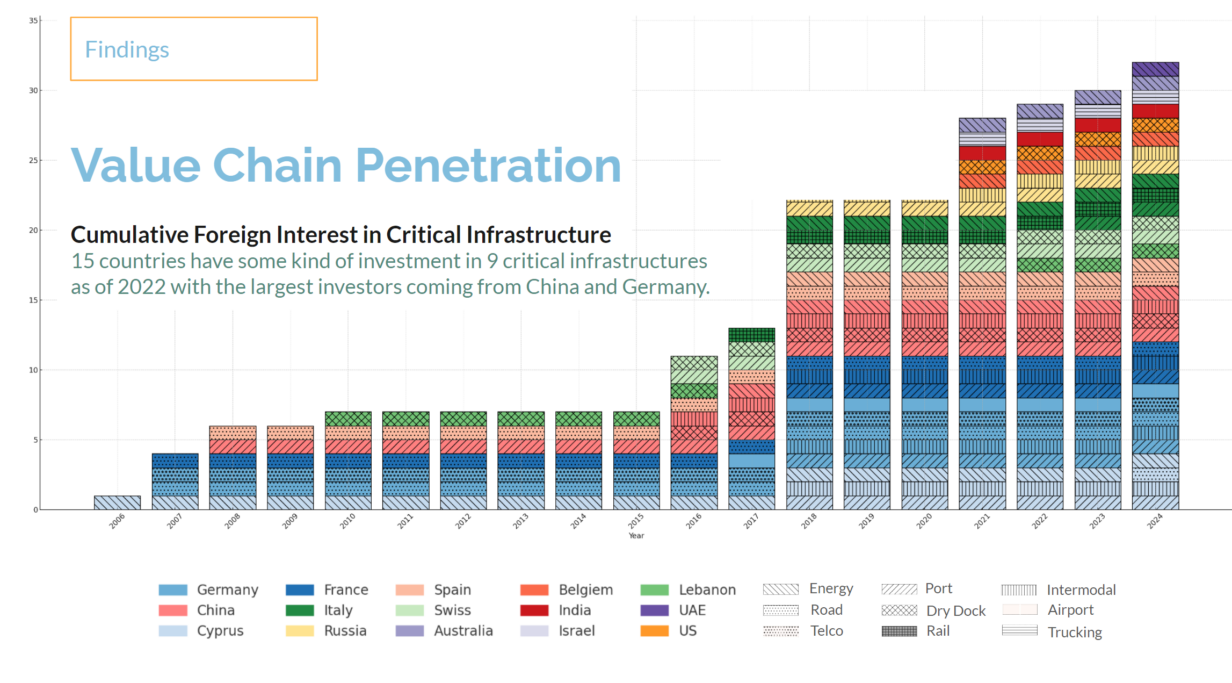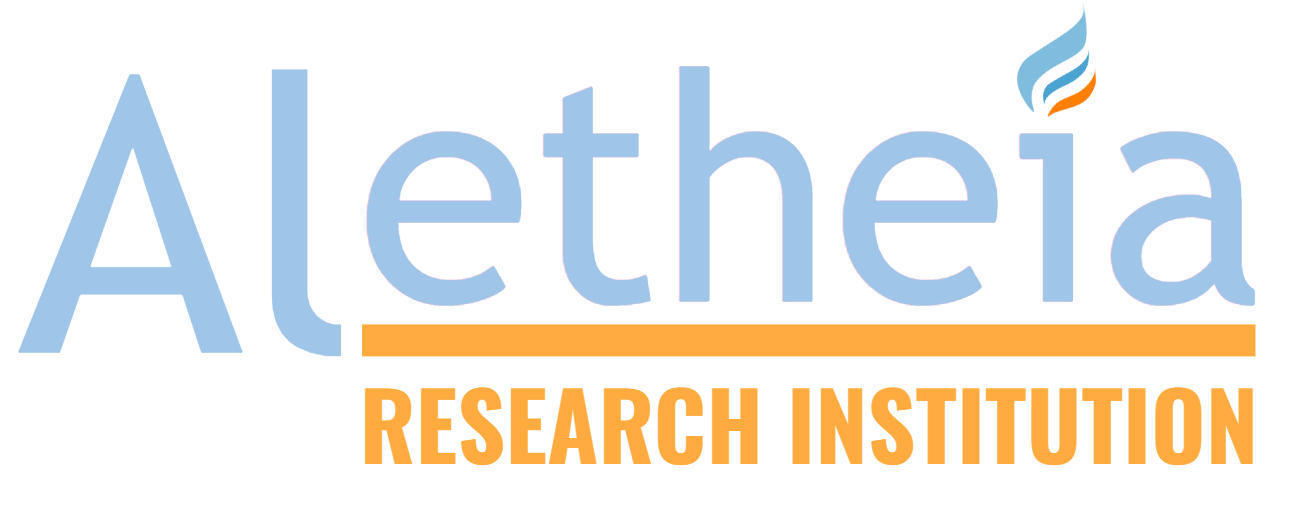
At the Athens Security Forum, hosted by the Institute of International Relations (ΙΔΙΣ), we presented an in-depth analysis of Greece’s escalating economic dependence on China. This analysis underscored the dual concerns of economic and national security posed by such dependencies.
In recent years, foreign investment in Greece’s critical infrastructure has grown exponentially. By 2022, Greece’s economic reliance on China exceeded the combined dependencies on all other countries. This dependency is most pronounced in semiconductor devices, which accounted for over 10% of all imports from China—a concerning figure given the strategic importance of semiconductors in global supply chains. Consumer goods dependency, another area of vulnerability, leaves Greece exposed to economic shocks that could result from trade disruptions.
The findings illustrate China’s growing influence in Greece’s key infrastructure sectors, including ports, telecommunications, and energy. Through state-owned enterprises (SOEs), China has consolidated control over critical assets, reshaping Greece’s supply chains. While this has streamlined operations and reduced transaction costs, it also creates trade concentration risks and amplifies geopolitical vulnerabilities.
This collaborative research effort was supported by Dr. Clark Banach, François Chimits, and Nicolas Deriquehem, utilizing the DERISK Infrastructure Database and MERICS Trade Dependency Database. It forms part of an ongoing project, with further findings to be published in an upcoming report co-authored by Dr. Banach, Konstantinos Tsimonis, Ilya Roubanis, and François Chimits. You can access Dr. Clark Banach’s presentation from the conference [here].
By reframing this analysis in the context of Greece’s broader economic landscape, the discussion highlighted a critical intersection of economics and security, inviting policymakers to take a proactive stance in addressing these dependencies.
